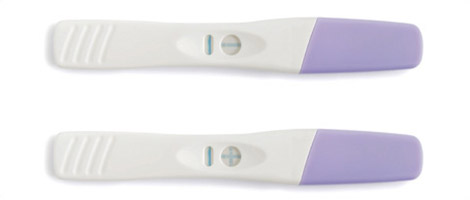
Am I Ready? - Hers
Every woman asks this question of herself and, often, of others, including myself. The answer is usually much more complicated than it appears.
Biologists define sexual maturity as the point at which an organism can reproduce itself. That is fine for grass or worms or birds and maybe even most mammals. It is an inadequate description of the human woman. It seems to imply that once the menses have begun, we are ready. In some cultures this is considered to be true. But in those cultures where motherhood is expected to begin at fourteen or so, there is a life expectancy of about 35. This, alone, should tell us something. Let’s consider the changes needed for a woman to be sexually mature as being physiological, psychological and social.
Physiological
The first signs of maturity are usually a swelling of the areola – the wider part of the nipples – and the beginning of breast growth. Some months later, the onset of the menses occurs and then full-blown puberty. The changes in the body are much more widespread and take much longer than most realize.
At the beginning of puberty, the vagina is a rather rigid, inflexible organ. It is only several cells thick and will not stretch readily. It is also not producing the natural lubricants that are always present in a mature woman and increase dramatically during sexual arousal. Five or so years later (at least), it is a wonderfully elastic organ, thick, strong and able to accommodate the birth of a child. The hips begin narrow and the pelvis has not flattened and broadened – characteristic of a female body. The clitoris is well protected deep under its hood to the extent that is identifiable only to a trained examiner.
The changes in hormones in our bodies cause the development of our primary and secondary sex characteristics and generate the fully developed woman’s body. The re-balancing of the hormones from those of childhood to those of adulthood takes several years. The attendant physical characteristics are still changing as well. Identifying the completion of this hormonal change is difficult and possibly not too relevant in its later stages. Generally, when your period has become quite regular and not much more than a discomfort, the hormones have found their balance. Growth can still be continuing though. I added a full cup size after my 20th birthday. Other women have this experience as well with breasts and other parts of the body.
The growth during adolescence requires nutrients – lots of nutrients. Even though you may not be growing as we usually consider it, individual organs are developing (breasts, uterus, vagina, hair); bone structure is changing, joints are developing and the body is becoming specifically feminine.
The risks of sex during this time are very high. If the menses are irregular, so is ovulation. More careful use of contraception is required if a woman chooses to become sexually active early in adolescence because the timing of risk is virtually impossible. Some women do not ovulate every month; others ovulate several times each month; some begin to ovulate from one ovary and not the other. You must consider yourself to always be fertile.
Should you become pregnant before your own development ends, there is competition for nutrients. The same food you need for healthy bones and joints are the same as the baby needs to develop normally as a healthy child. This is one reason that teen mothers often have underweight or premature babies. In this competition, both lose. The mother does not develop naturally and neither does the baby. Teen pregnancy requires more specialized care than adult pregnancy and should always follow a carefully planned diet. Pregnant teens are most in need of early medical care and the least likely to seek this care.
As the primary sex organs develop, the vagina quite soon develops the capacity to accept a penis. As shocking as your first touch of penis may be, that is really quite small compared to the baby’s head. The vagina may accept sex but not be ready to deal with a major outcome - delivery. The birth may be forced to a C-section, a large epesiotomy or permanent damage to your sex organs.
During pregnancy there is another major shift in the mix of hormones in your body. Never having stabilized from the onset of puberty, contradictory signals are being sent to other parts of your body. Your breasts have been told to grow but before they have, they are being told to stop growing and to produce milk. The signals for changing bone structure cannot be fully implemented when they are changed to growing another body in your uterus. Along with the diversion of nutrients, this can cause life-long problems for the mother. The joints are still forming in adolescence and now they are required to carry a weight, off-balance, for which they are not prepared. The potential physical problems are not with the conduct of a sex life but with the naturally intended results of a sex life – pregnancy.
Psychological
The psychological effects of beginning sex early are the least emphasized but could be the most damaging. Any sexually active woman is subject to becoming pregnant every time she accepts a penis into her. It is likely that every woman reading this checks her panties each time she uses the toilet. What is draining out of us and what could it mean? Each of the roughly 400 hundred periods each of us has presents a possible concern. If we are trying to become pregnant, we dread seeing the little red spots; if we are hoping to not be pregnant, they are heartily welcomed. As much as we complain, and sometimes actually suffer, during our period, it is a very welcome event each month. If it is not there, the message is much worse.
I am certain that for every woman who has ever had vaginal sex for the first time, her first thought the following morning is, "I wonder if I am pregnant!" That was true for me (even though I thought myself totally prepared), and is true for every woman I ever asked about it. (The clinic secretary just brought in a sheaf of papers and I asked her what her first thought was the day after losing her virginity. Same answer!) And the question repeats itself each day until the next period arrives. By the age of 26, this is a normal part of a woman’s life and we have likely thought through the possible actions and consequences. At the age of 16, this is a horrible weight to bear. It gets heavier with each passing day until we see the spots but if they are two days late, the burden becomes even heavier.
One young woman at this site, still becoming accustomed to this part of womanhood, sends me an email every month to the extent of "I think it should have been yesterday!!!; I am worried." This is a huge burden for a teen still learning where she fits in the world and how to deal with myriad other details of being a woman. For some, every month is an excruciating wait. This diverts attention and energy that could be more productively used getting ready for life. The true irony is that many young women are going through the motions of sex for someone else’s satisfaction while they themselves have not yet learned what an orgasm feels like.
In my case, my girlfriend and I each decided it "was time" and set out to prepare for seducing our boyfriends "all the way." We were fifteen and tired of being told to protect our virginity. After sweating it out for a few months with our only satisfaction being from masturbation when we got home, we decided it was not worth it. Both my older sister and an aunt (each of whom assisted in our preparations buying vaginal jelly, condoms, etc) warned us of these consequences. The first month that I was not worried constantly about whether or not my period would arrive was like a rebirth. We also discovered that we could help each other but that is another discussion.
A few years later, I truly became sexually active and have found it to be quite enjoyable ever since. There was little peer pressure for us – except for each other. We may have acted as though on a dare. Obviously our boyfriends were receptive as could be but had not been pressuring much beyond copping a feel and being masturbated every now and again. The protected, religious environment of the Hebrides prevented much open pressure but I have been surprised in later years to discover how many other women (perhaps a year or so later) experienced the same.
In more cosmopolitan settings, not only are the boys encouraging (they, after all, have everything to gain in their youthful, macho view) but the sexually active girls often encourage their peers to get it on. It is often embarrassing to argue the point. This may expose your own ignorance or inexperience. To the boys, the response should be along the lines of, “Are you ready to be a daddy?” With the girls, there is often more opportunity to discuss the real issues.
If they are truly friends, they will be willing to have this discussion. If they are not, why are you taking their advice? The best response to another woman your own age is to ask what she is really getting out of sex? For the vast majority of mid-teens, the honest answer is, simply, constant fear. Fear of pregnancy; fear of disease; fear of family finding out; fear of breaking off the relationship; fear of talk; fear of her own inadequacy. Their responses: we use a condom every time; no one will talk; he loves me; I love him; he would not think of doing it with another; I am learning to be a woman; I am doing it, I must be grown up. For every 100 women in your school using a condom every time, 15 will become pregnant in the next year. One of every ten sexually active teens carries one or more STDs. Fewer than five percent of these teen relationships will lead to eventual marriage and life partnership. Every sexually active classmate you have has sat in a toilet stall crying while looking at her unspotted panties. The boys? Many simply get off a few times on a date and cannot wait to announce their score. I do not hate men; I love them. In this teen sub-culture, this is simply the way that it is.
You may be ready for sexual release but that does not mean you are ready for fully acted vaginal sex. In another thread we shall discuss alternatives that should be satisfactory to you and your boyfriend.
Social
Pregnancy for a married 26 year old is expected; for an unmarried 26 year old, the breaks of the game; for a 19 year old, careless and promiscuous; for a 16 year old, a disaster. None of these are necessarily accurate but they are the social perceptions. They form the attitudes and treatment of the people around you.
At another level, knowledge that an unmarried woman in her 20s is sexually active is no surprise. Thankfully, today that would be considered entirely acceptable and her business; she knows what she is doing and is responsible for her own actions. Knowledge that a 19 year old is sexually active is generally ignored. As long as she does not become pregnant, the family can ignore the signs and the reality and hope she knows what she is doing. Knowledge that a 16 year old is active remains a concern. And any consequences will be shared by the entire family, not just the young woman.
Can people tell? Well, no, you do not look any different without a hymen than you did with a hymen (except on the exam table). But, yes, there are strong indicators that can cause great concern among your friends, family, school and, even, people you do not know. The boys you are dating send a message; the girls you hang out with; the places you are seen. I live in a very small town where nearly everybody is recognized by most of the residents. In a larger city, it would amount to a neighborhood and the knowledge of families and people and places is about the same. If I see a couple walking down a lane at midnight, I do come to some conclusions. I know what goes on at the hikers hut at the other end of that lane. If it is a couple of 18 year olds, I may think it even a bit humorous; if it is a couple of 16 year olds, I may have some concern. If my partners 14 year old were one of them, I would likely become frenzied. Similar conclusions are frequently drawn.
I recall a very popular young woman on the island where I grew up who became pregnant. This was in a very close community. She and her boyfriend were both 17. I suspect that every mother on the island forbade her children (including me) to ever date any of her younger siblings. Wild assumptions and conclusions, but real nonetheless. The whole family is tarred by the same brush. Fifty years ago she would have been sent away, the baby put up for adoption and, publicly, everyone would have ignored the whole thing. Behind closed drapes, every family would be clucking over the situation. Families have moved to avoid the stigma of a pregnant daughter; others become tolerated outcasts.
Within the family, the "secret" of your sex life is impossible to maintain. Every woman who is a mother has had a few encounters with semen and recognizes it immediately – the smell, the appearance, the stiffness of fabric it is on. Pantiliners in the bin at strange times are noted; spermicides have a characteristic smell. Your mother may ignore it; she may rant and rave; she will be aware.
The financial burden of a child for a 26 year old is hers and, likely, hers alone; for a 16 year old, it will be a cost to the parents. The risk being taken is not just your own (though those should be paramount) but risk for the whole family – parents and siblings. Our imaginary 26 year old will have a drastically changed life (whether or not she is married) but a very manageable one. Single mothers are not uncommon and there are support systems for them – day care, medical coverage, babysitters, accepting friends and, often, an accepting family. Our imaginary 16 year old will face very different challenges. Her social life is essentially gone for several years. Her own education will become more difficult, if possible at all. The burden placed upon her parents will be very high.
OK, so what am I saying. The answer for every woman is her own. One-half of all women become sexually active between their 18th and 20th birthdays. Maybe a quarter, start earlier and the other quarter wait longer. By the age of 25, there are relatively few virgins remaining but they are far from unknown. It would appear, then, that most of us have weighed our options and come to the conclusion that we are ready in our very late teens. Sociologists would say that is "normal," meaning that is what most people do. I have enough faith in women to believe that most of these women have chosen to remain virgin until this age and have chosen to become active at this age. It is no accident that throughout the industrialized world (Japan is the sole exception) women are making this choice. They are also of an age where they have considered the risks and the actions that may be required. Their eyes are open. It is no accident that some wait longer; they simply are not ready to take the very serious plunge. Younger, worries me. There is not enough accumulated experience, own and learning from others, to be taking a calculated risk.



